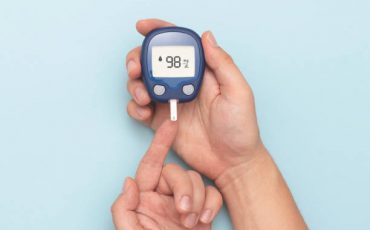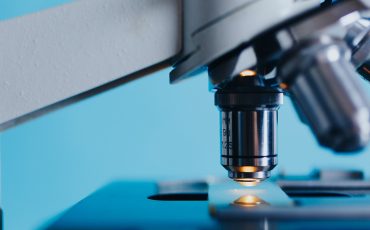Eight genes which control levels of the main steroid produced by the adrenal gland, believed to play a role in ageing and longevity, have been uncovered by an international consortium of scientists, co-led by King’s College London.
Crucially, some of these eight genetic regions are also associated with other important diseases of ageing, including type 2 diabetes and lymphoma. Researchers say that these findings, published in the journal PLoS Genetics today, provide the first genetic evidence for the ageing role of the steroid, and therefore highlights it as a marker of biological ageing.
It was already known that the concentration of the steroid dehydroepiandrosterone sulphate (DHEAS), declines rapidly with age – it diminishes by 95 per cent by the age of 85. This has led to speculation that a relative DHEAS deficiency may contribute to common age-related diseases or diminished longevity.
To explore the mechanisms behind declining levels of the steroid, the researchers carried out an analysis of DHEAS levels and 2.5 million genetic variants in 14,846 people from Europe and USA. They found eight common genes that control the blood concentration of DHEAS, and importantly some of these genes are associated with ageing and common age-related diseases such as type 2 diabetes and lymphoma.
Lead author, Dr Guangju Zhai from King’s College London, said: ‘This is the first large-scale study to unlock the mystery that has always surrounded DHEAS. We have identified specific genes that control its concentration levels, and shown that some of these are also involved in the ageing process and age-related diseases.
‘The findings provide us with the basis for future studies to look into potential mechanisms of exactly how the DHEAS is involved in ageing. The next important question to try and answer is whether sustained high levels of DHEAS can in fact delay the ageing process and prevent age-related diseases.’
‘Professor Tim Spector, senior co-author from King’s, said: ‘This study shows the power of collaborative genetic studies to uncover mechanisms of how the body works. For 50 years we have observed the most abundant circulating steroid in the body, DHEAS, with no clue as to its role. Now its genes have shown us its importance in many parts of the ageing process.’
Notes to editors
King’s College London
King’s College London is one of the top 25 universities in the world (2010 QS international world rankings), The Sunday Times ‘University of the Year 2010/11′ and the fourth oldest in England. A research-led university based in the heart of London, King’s has nearly 23,500 students (of whom more than 9,000 are graduate students) from nearly 140 countries, and some 6,000 employees. King’s is in the second phase of a £1 billion redevelopment programme which is transforming its estate.
King’s has an outstanding reputation for providing world-class teaching and cutting-edge research. In the 2008 Research Assessment Exercise for British universities, 23 departments were ranked in the top quartile of British universities; over half of our academic staff work in departments that are in the top 10 per cent in the UK in their field and can thus be classed as world leading. The College is in the top seven UK universities for research earnings and has an overall annual income of nearly £450 million.
King’s has a particularly distinguished reputation in the humanities, law, the sciences (including a wide range of health areas such as psychiatry, medicine, nursing and dentistry) and social sciences including international affairs. It has played a major role in many of the advances that have shaped modern life, such as the discovery of the structure of DNA and research that led to the development of radio, television, mobile phones and radar. It is the largest centre for the education of healthcare professionals in Europe; no university has more Medical Research Council Centres.
King’s College London and Guy’s and St Thomas’, King’s College Hospital and South London and Maudsley NHS Foundation Trusts are part of King’s Health Partners. King’s Health Partners Academic Health Sciences Centre (AHSC) is a pioneering global collaboration between one of the world’s leading research-led universities and three of London’s most successful NHS Foundation Trusts, including leading teaching hospitals and comprehensive mental health services. For more information, visit:www.kingshealthpartners.org.
Further information
Emma Reynolds
Press Officer at King’s College London
Email: emma.reynolds@kcl.ac.uk
Tel: 0207 848 4334






